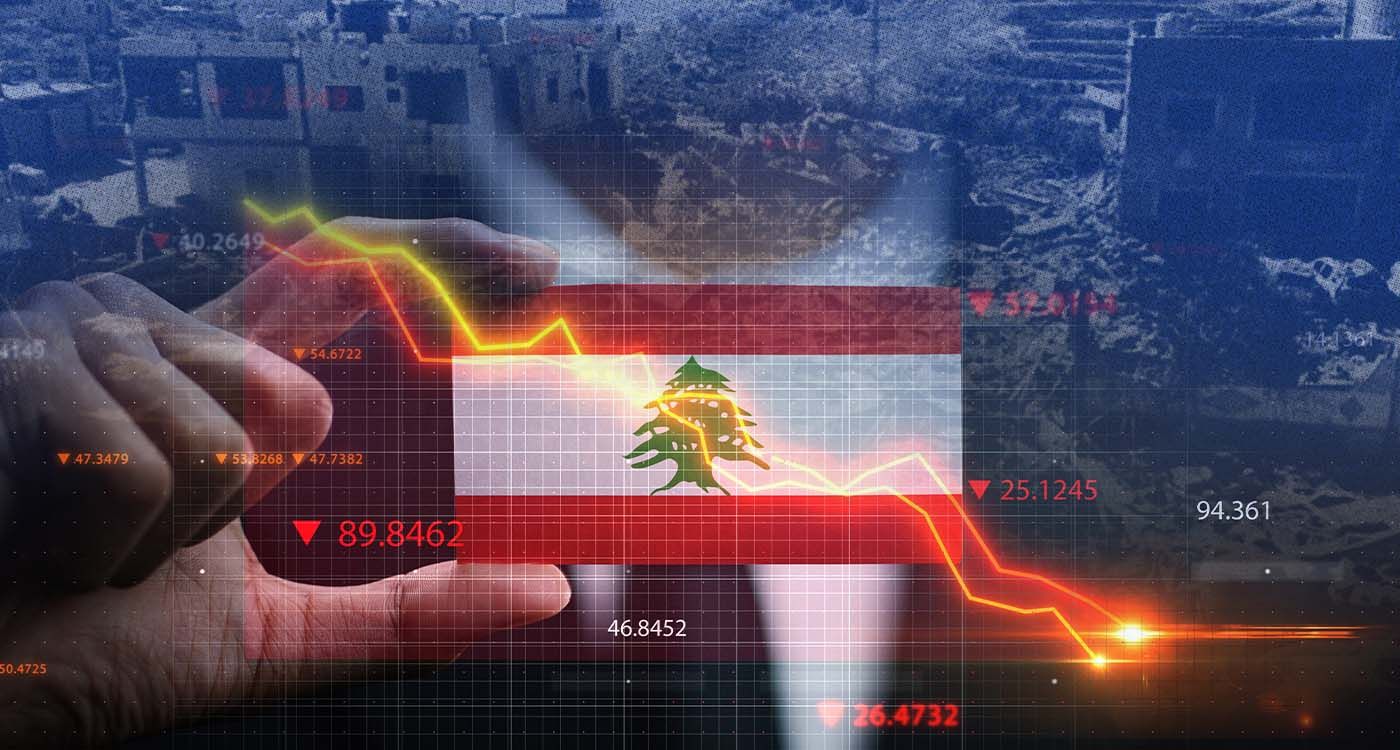
According to the World Bank, a 25% contraction in Lebanon's GDP is forecast for 2024.
Since the beginning of the conflict between Israel and Hezbollah on October 8, 2023, Lebanon has endured significant human and economic losses, further weakening a country that faces serious political and economic challenges. The impact of the persisting conflict is felt across all sectors.
In an interview with This is Beirut, financial and economic expert Khalil al-Khoury indicated that the World Bank predicts a contraction of Lebanon’s GDP by approximately 25% in 2024. “Considering that Lebanon’s GDP was about $19.1 billion in 2023, a 25% contraction amounts to a loss of roughly $4.775 billion.” He also highlighted that key sectors like tourism, agriculture, industry and commerce are likely to experience substantial declines. For instance, the revenues for the tourism sector are projected to fall to just $3 billion in 2024, compared to around $7 billion in 2023. This represents a significant loss of $4 billion, Khoury explained.
In terms of infrastructure, the damage is significant. He estimated that "the cost of rehabilitation ranges from $3.8 billion to $4.6 billion."
The closure of certain border crossings and disruption to trade routes also caused a 21% drop in commercial activity. “This translates to losses of around $4 billion in trade value, given that Lebanon's total trade volume was approximately $19 billion in 2023,” Khoury noted.
Furthermore, the humanitarian crisis affects approximately 3.7 million people, taking into account those displaced by the current crisis in addition to those already at risk due to long-term economic and social challenges. “The cost of aid and support for these people is substantial, with estimates suggesting that $250 million per month is needed to meet their basic needs, totaling around $3 billion per year.”
Energy and water: $320 million in damages
Caretaker Minister of Energy and Water Walid Fayad told This is Beirut that preliminary estimates of the damage caused to the energy and water sectors so far is approximately $480 million. This figure includes $320 million in losses for the energy sector and about $160 million for water.
Fayad explained that the expenses in the energy sector are divided into four categories. First, the cost of boosting institutional services is estimated at around $33 million, as the increasing number of displaced people has driven up expenses for heating, electricity and fuel to supply accommodation centers. The cost for reinforcing electrical infrastructure has been assessed at approximately $60 million. Damage to infrastructure, networks, power stations and other facilities amounts to about $100 million. Additionally, revenue losses resulting from unpaid bills are estimated at around $100 million.
With regard to fuel supplies, Fayad said Lebanon benefited from Iraq's support, and the government was working on renewing a yearly agreement under which Baghdad would increase fuel supply to two million tons, according to advantageous terms.
Loss estimates and figures are set to rise as long as a ceasefire is not reached and Israeli strikes continue with the same intensity.




Comments